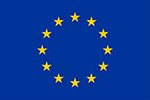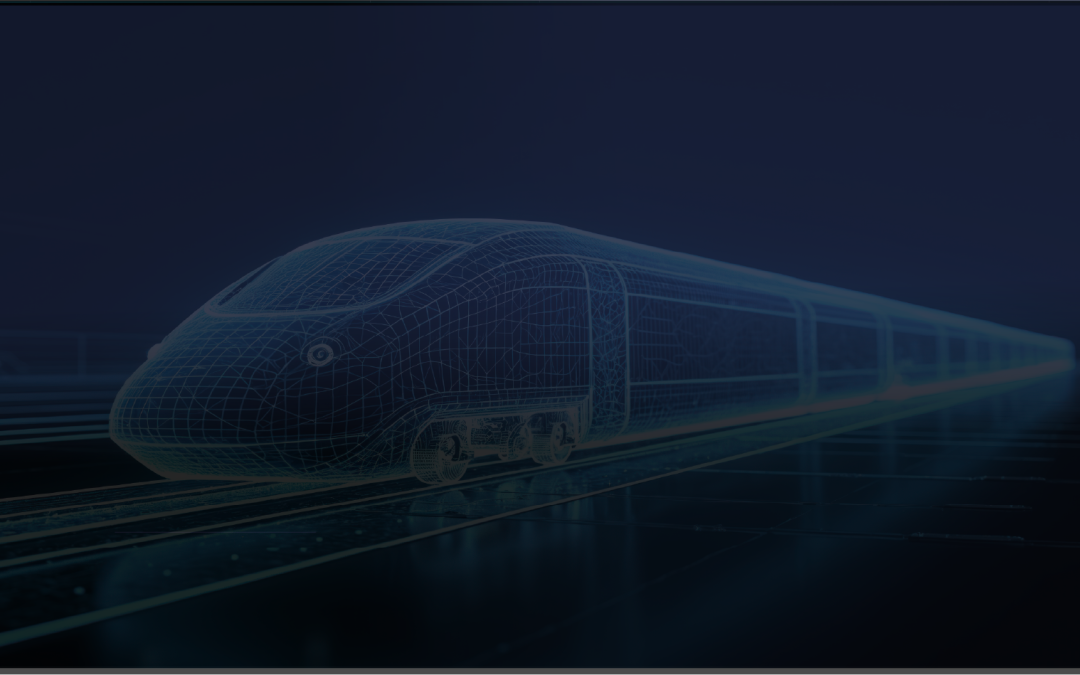What does it take to transfer innovation from research to real-world deployment? The seventh episode of the European...
Scientific Steering Group
List of Members
The following 12 experts comprise the Scientific Steering Group of the Europe’s Rail Joint Undertaking:
DI FEBBRARO Angela is a Professor in Transportation Engineering at the University of Genova where she obtained her PhD in Electronic and Computer Engineering in 1991. Her recent research topics cover fields such as planning, design, and management as well as the safety and security of transportation and logistic systems. She acted as the Italian National Delegate in the Horizon 2020 Programme Committee for “Smart, Green, and Integrated Transport” and also in the Governance Group of Strategic Transport Research and Innovation Agenda (STRIA). Her involvement translates into membership and representation in academic and innovation networks, including the Alliance for Logistics Innovation through Collaboration (ALICE) in Europe and the European Rail Research Advisory Council (ERRAC). On a national level, she is President of the Technical-Scientific Committee of the Ligurian Technology Pole RANSIT (Technologies and Research Network Safety and Intermodality in Transport) but also Member of the Strategic and Management Committee and the Executive Board of the Italian National Cluster for Transport. Author of about 200 scientific papers, she also published her book “Discrete event systems” (McGraw-Hill, 2002).
SANZ BOBI Juan de Dios is currently a Professor in the mechanical engineering department where he focuses on topics such as railways, safety and quality in the industry, and societal challenges of engineers in the society transformation at the Polytechnic University of Madrid. He obtained his PhD in 2002 in an industry engineering programme in process control and artificial intelligence from the same university. His publications and academic work deal with vibration reduction on overhead contact rails, condition-based maintenance of railway car-body as well as freight railway transport among 30 others. He participated in numerous conferences and seminars, such as the World Congress on Railway Research. In addition to Spanish projects as well as privately funded projects, he is currently involved as an Expert in the framework of Horizon 2020. Juan de Dios Sanz Bobi’s contribution applies to national, regional and international levels as a member of the Spanish Delegation at the United Nations Economic Commission for Europe (UNECE) since 2018 and part of the permanent Advisory Group at ERRAC.
BARON Nacima is Senior Research Scientist as well as Dean of the Faculty at the Institut Universitaire de France where she works on European railway and multimodal hubs including flow models, spatial design, urban insertion, Railway terminal regulation, management, and security. She is currently acting as Principal Investigator for the funded program EU COFUND Marie Slodowska Curie Action CLEARDOC, but also recently focused on programmes such as RailtoLand Digital tools for Rail tourism redevelopment, Southern Europe urban rail megaprojects crisis in perspective, and MUTANDIS Sustainable mobility solutions for low density areas. She obtained a Master of Science in Urban and Regional Planning in 1994 and a PhD in Geography and Planning from the Sorbonne University in 1997. She is the author of more than 14 academic books, 47 peer-reviewed articles, and 40 chapters. While being an active researcher, Nacima Baron is involved in numerous social and political activities at national, regional and worldwide levels, including CNFG and ALLENVI in France, NECTAR, EURA, Horizon Europe DUT at European scale, as well as CODATU and International Geographical Union.
CARBONI Michele is currently an Associate Professor in Mechanical and Machine Design at the Department of Mechanical Engineering of Politecnico di Milano (Milano, Italy). His research activities focus on the fields of structural integrity of mechanical components, non-destructive testing and structural health monitoring. In this role, he participated in and/or managed several nationally and internationally funded and private research projects, such as NextGear (H2020), RAAI (H2020), SUSTRAIL (FP7), and EURAXLES (FP7) to name a few strictly related to the railway field and the European framework for research projects. He is involved, as appointed person in charge, of all the non-destructive testing activities performed in Railway Maintenance at the Department of Mechanical Engineering of Politecnico di Milano. In the frame of the Italian Society for Non-Destructive Testing Monitoring Diagnostics (AIPnD), he is in charge of the technical management of the Training Centre for Level 3 non-destructive testing personnel operating in Railway Maintenance. His list of scientific publications includes 50 journal papers, and four contributions to international scientific books while he intervened as a speaker in numerous international conferences such as the World Congress on Railway Research, International Wheelset Congress, International Symposium on Structural Health Monitoring and Non-destructive Testing, and several editions of the European Conference on Non-Destructive Testing and of the World Conference on Non-Destructive Testing. He obtained a Master’s in Mechanical Engineering from Politecnico di Milano as well as a PhD in Mechanical Behaviour of Materials from the University of Pisa.
DE WEERDT Mathijs is a Professor of Algorithms for Planning and Scheduling (Computer Science) and Head of the Algorithms Group at Delft University of Technology where he also obtained his PhD in 2003. He is leading projects such as Robust RAIL: ICAI Lab on Responsible Decision Support for Efficient and Dynamic Railway Systems. He is currently a Scientific Advisor at the Dutch National Railways and one of the founders of the TU Delft Rail Institute (2020). Through his work, he approaches artificial intelligence from the energy transition and sustainability angle. His recent publications deal with train unit shunting problems, machine learning to tackle optimization problems, rolling stock service effectiveness or maintenance location choice. As Prizewinners, his awards include ECCO Industrial Challenge, Track 2 Limited Evaluations, and Delft Computer Science Teacher of the Year. While being an active academic, he provides social contributions as well as advice for the industry and contributed to an open-source software dedicated to the shunting and servicing of trains.
FANTECHI Alessandro is currently a Professor since 2004, and President of the School of Engineering since 2019 at the University of Florence. After he graduated in Information Science in 1978, his academic activities led him to conduct intense research focusing on the application of formal specification and verification methods in the field of Software Engineering. His last research interests focus on industrial applications of model checking and on software product lines and variability modeling. The industrial application of this academic activity translated into numerous collaborations with preeminent private companies including General Electric Transportation Systems or ALSTOM, enabling him to gain a significant experience between technology transfer and advanced industrial research. He is currently acting as Coordinator of Work Package 1 dealing with the increase of capacity of railway transport since 2022. At a national level, he has been a Member of the Scientific Committee of DITECFER (Distretto tecnologico ferroviari) since 2014 but is also involved in a wide range of associations dedicated to railways and mobility like the Light Rail Transit Association (LRTA) or Collegio Ingegneri Ferroviari Italiani (CIFI).
FERREIRA Luis is an Associate Professor at the Department of Mechanical Engineering at the University of Porto since 1991. In parallel, he is holding the position of Chief Executive Officer of the Railway Portuguese Competence Center, where he is dedicated to developing and disseminating innovative solutions for the Portuguese Railway System and for the Portuguese supply industry chain for rail. He is currently the Honorary President of the European Safety, Reliability and Data Association (ESReDA). In 1982, he obtained a PhD from the University of Claude Bernard at the INSA of Lyon in Mechanical Engineering. In addition to his two books about tribology and maintenance, he has published 57 articles dealing with twin-disc tests of rail /wheel steels, assessment of rolling contact fatigue behaviour of railway steels, as well as predictive maintenance concepts using artificial intelligence tools among others. In 2008, he won the EFNMS Incentive Award for Dedication and Outstanding Achievements in the field of Maintenance.
LANDGRAF Matthias is the CEO and founder of Evias, a company providing expertise for efficiency, cost-effectiveness, and sustainability in the rail industry to its customers. In 2016, he obtained his Doctorate in Science in the field of condition monitoring, predictive maintenance, asset management, and life cycle costing of railway infrastructure at Graz University of Technology. Previously to his graduation, from 2011 to 2023, he was responsible for project lead, research, and teaching within the Institute of Railway Engineering and Transport Economics of this same university where he is also a lecturer. Since then, the methods developed throughout his research, especially his Doctorate in Science have been implemented at a European Level by various railway infrastructure managers such as ÖBB (Austria), SBB (Switzerland), ProRail (Netherlands), and BaneNor (Norway). With over 55 publications in the form of peer-reviewed scientific papers, conference papers, book chapters, and books, his work is mainly dedicated to leveraging rail transport for environmental sustainability. He is also the Lead Author of the 2nd Austrian Assessment Report on Climate Change, drawing strategies from the state of knowledge on climate change in Austria. He won several awards such as the FSV Research Award 2017, VCÖ Mobility Award (Consortium Hytrail) 2019, and best paper awards at WCRR 2019 in Tokyo and IHHA conference 2017 in Cape Town.
LEITNER Martin holds the position of Managing Director at the Testing Institute for Operational Stability and Rail Vehicle Technology since 2022 in Graz, Austria. He is also Full Professor and Head of the Institute of Structural Durability and Railway Technology since 2020. Martin Leitner obtained his PhD in 2013 at the University of Leoben in Austria where he focused on fatigue design. He graduated from the same university in 2009 in Mechanical Engineering. His academic background also includes an MBA in general management competences, but he consolidated his research work at Montanuniversität Leoben, during 10 years as Researcher, Senior/Key Researcher and finally Assistant/Associate Researcher for the Chair of Mechanical Engineering. With numerous publications, his work involves fatigue assessment, damage calculation, residual stress as well as simulation models to name a few.
MOESSNER Klaus is Professor of Communications Engineering at the Faculty of Electrical Engineering and Information Technology, at the University of Technology Chemnitz. In this role, he focuses his research on wireless communication networks and situation awareness for connected mobility. In 2001, he obtained his PhD in Electronic Engineering at the University of Surrey dealing with mobile and wireless communication networks, cellular communications, satellite communications, and network and service management. He has been acting as a prime investigator in more than 30 projects. These include national German projects: 5G4Rail, Train Integrity Management System, LCX4Rail, SMO I, SMO II, Wahrnehmungsnetz, 5G RACOM, as well as a number of H2020 projects. Furthermore, FP7 projects including QoSMOS and Speed5G. Author of a number of publications, he has significantly contributed to research providing insights into the requirements and particularities of communication systems in the rail environment and in general in connected mobility situations. He is regularly presenting at Conferences including Globecom, VTC, EUCNC, and gives workshops and tutorials on different communications and IoT related topics.
ROUTIL Ladislav is vice-dean for Research at the University of Pardubice, Faculty of Transport Engineering where he is also Associate Professor and Co-Head of the Research Team at the Department of Transport Structures. After obtaining his PhD at the Brno University of Technology, Faculty of Civil Engineering in construction and traffic structures, he focused his research topics on construction and transport structures (incl. natural hazards) as well as structural and fracture mechanics, stochastic and reliability analysis, and computational mechanics. His participation in research projects includes– INnoVation and ENTrepreneurship in Higher Education Institutions (“INVENTHEI”) (2021-2023) followed by Deep INVENTHEI (2023-2024) with the European Institute of Innovation and Technology (EIT), but also “Non-Destructive Determination of Mechanical Stress in Continuous Welded Rail” (2020-2022) among others. He is the author of several publications and is involved as a speaker at an international level (e.g. Japan, France, Germany, Denmark, Italy, Portugal).
STOELINGA Marielle has been a Professor at Twente University since 2017 as well as Radboud University since 2016 where she is working on Risk Management for high-tech systems. She obtained her PhD in Computer Sciences in 1997 at Radboud University. Since then, she has provided worldwide expertise through research, public outreach, and influential papers about how to achieve better risk-taking. She has been awarded several grants and scientific prizes such as the FORMASIG research grant, funded by rail partners ProRail and Deutsche Bahn, aiming at improving the quality of railroad standards for interface specifications, through model checking and based testing. She built mathematical methods that underlie industrial risk formalisms, such as fault tree analysis, and applied stochastic model checking to model-based risk analysis. More recently, she initiated her work on predictive maintenance by exploiting sensor data and AI, to prevent failures. Her techniques were also adopted and implemented by several industrial stakeholders.
Prof. Dr.-Ing. Corinna Salander
Sebastian Stichel
The following 2 experts comprise the observers list of the Scientific Steering Group of the Europe’s Rail Joint Undertaking:
- MARIN-LAMELLET Claude (ECTRI)
- ANDERSSON Jan (ETRA)
Rules of Procedure
Other Documents
Meeting Minutes
- Sixth meeting of the Europe’s Rail Scientific Steering Group
- Fifth meeting of the Europe’s Rail Scientific Steering Group
- Fourth meeting of the Europe’s Rail Scientific Steering Group
- Third meeting of the Europe’s Rail Scientific Steering Group
- Second meeting of the Europe’s Rail Scientific Steering Group
- First meeting of the Europe’s Rail Scientific Steering Group
The Call for expressions of interest for the selection of a member of the Scientific Steering Group of the Europe’s Rail Joint Undertaking was launched on 15 March 2023. The call was closed on 30 June 2023. The procedure was finalised on 19 October 2023, with a Decision of the Europe’s Rail Governing Board that appointed 12 candidates to form the Scientific Steering Group of the Europe’s Rail Joint Undertaking and 2 candidates to form the reserve list.
Any personal data provided by the members of the bodies of the EU-RAIL shall be processed pursuant to Regulation (EU) 2018/1725 of the European Parliament and of the Council of 23 October 2018 on the protection of natural persons with regard to the processing of personal data by the Union institutions, bodies, offices and agencies and on the free movement of such data. For more information, please read the data protection notice.
















